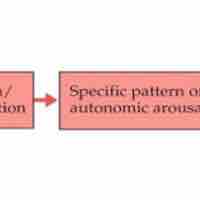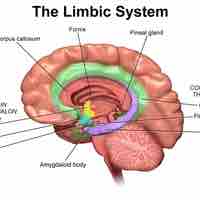Chapter 12
Emotion
Book
Version 11
By Boundless
By Boundless
Boundless Psychology
Psychology
by Boundless
Section 3
Theories of Emotion
Appraisal Theory of Emotion
According to appraisal theory, our interpretation of a situation causes an emotional response that is based on that interpretation.

James–Lange Theory of Emotion
According to the James–Lange theory of emotion, emotions arise from physiological arousal.
Cannon–Bard Theory of Emotion
The Cannon–Bard theory of emotion argues that physiological arousal and emotional experience occur simultaneously but independently.
Schachter–Singer Theory of Emotion (Two-Factor Theory)
The Schachter–Singer theory views emotion as the result of the interaction between two factors: physiological arousal and cognition.
The Facial Feedback Hypothesis
The facial feedback hypothesis asserts that facial expressions are capable of influencing our emotions.
You are in this book
Boundless Psychology
by Boundless
